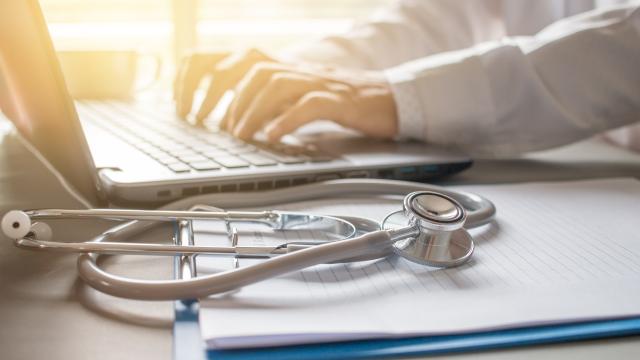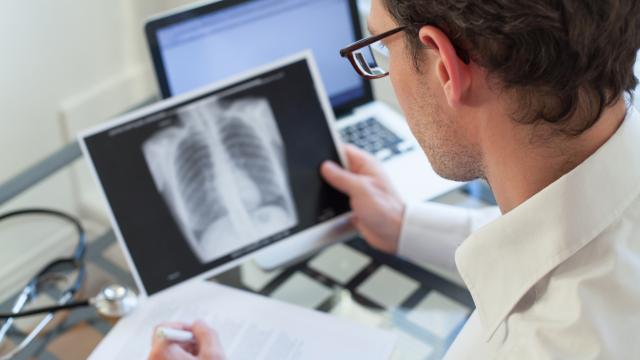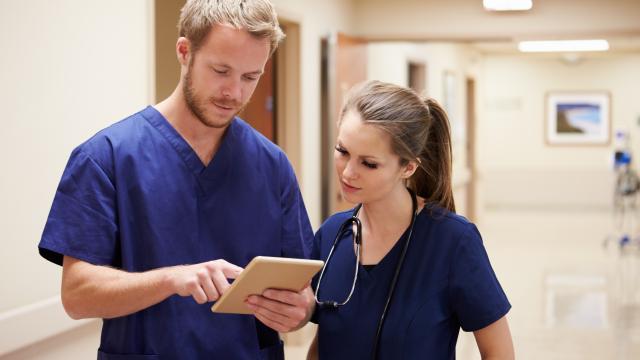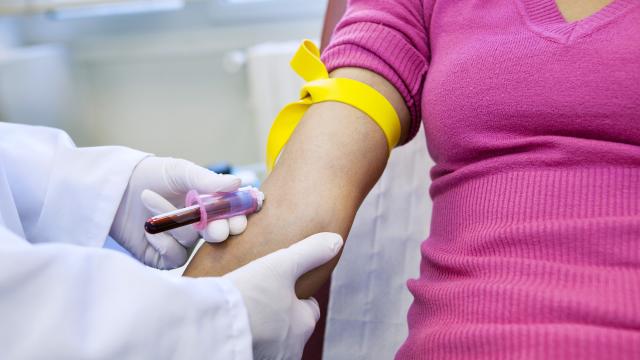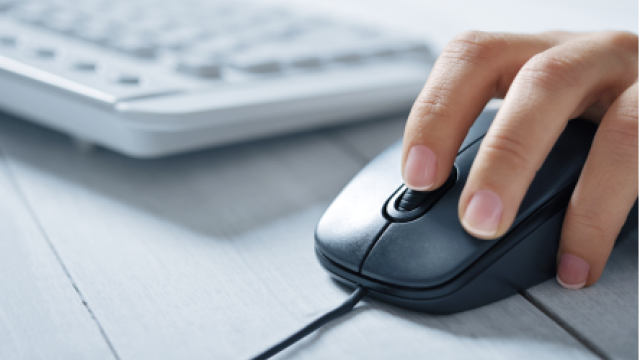Tuberculosis For Health Professionals
This page provides tuberculosis (TB) information and tools for health care professionals.
Reporting and Surveillance
Active tuberculosis (TB) disease is a Category I reportable condition in Wisconsin. Latent TB infection is a Category II reportable condition in Wisconsin.
Diagnosis and Treatment
The Wisconsin TB Program encourages clinicians to use the resources on the page linked below for the diagnosis and treatment of TB disease or latent TB infection.
Precautions
Health care personnel are potentially exposed to TB during health care activities. Facilities should establish TB infection control programs.
Nurse Care Management
Nurse care management helps ensure adherence to the TB treatment plan. Nurse case managers connect patients with needed clinical and social services throughout treatment.
Non-Risk-Based (Required) TB Screening and Testing
People without risk factors may need screening as a condition of employment, enrollment in school, admission to a health care facility, or for other reasons.
WEDSS
The Wisconsin Electronic Disease Surveillance System (WEDSS) is a secure, web-based system designed to facilitate reporting, investigation, and surveillance of TB and latent TB infection (LTBI).
Latent TB infection medication availability
Last updated 02/17/2026
Priftin® back in stock
Rifapentine (Priftin®) is now back in stock at the Wisconsin TB Dispensary Pharmacy. New orders for rifapentine will be filled as supplies allow.* Pharmacies across the state may still be experiencing a shortage. If you are obtaining rifapentine from a local pharmacy, ensure the full 12-week supply is available before starting the medication to ensure no interruptions of treatment. Contact the Wisconsin TB Program with any questions.
Stable availability: Isoniazid (INH), Rifampin (4R), rifapentine (Priftin®)
*If new orders exceed supply, priority will be given to TB contacts and those with high-risk factors, F-02314 (PDF).
For LTBI medications in pill form, automatic refills will be dispensed. For liquid or compounded medication, please complete the following steps to send a refill request:
- Fill out the medical refill request form, F-44126 (PDF).
- Upload it to the filing cabinet in WEDSS.
- Change the status to "LTBI Medication refill order."
- If you are obtaining 3HP or rifampin through another pharmacy, ensure that they have enough medication set aside to complete the entire course of treatment for your patient.
- Continue to check your email and this webpage for the most up to date information on LTBI medication supplies.
- Email the Wisconsin TB Program with any questions: DHSWITBProgram@dhs.wisconsin.gov, or by calling 608-261-6319.
TB events
Upcoming webinars
The Wisconsin Virtual TB Summit Returns in Spring 2026! Join local, state, and national tuberculosis experts as they share their work to understand and improve care for people diagnosed with TB in our community. Registration is free and gives attendees access to all Wisconsin TB Summit sessions. Session topics include:
- TB Epidemiology, Updates, and Resources: Local, State, and National
- TB Challenges: Gastrointestinal & Peritoneal TB with Case Study Examples
- Bridging Community & TB Care
- TB Radiology: Perspectives on Adult and Pediatric Radiology with Case Study Examples
- Ask the Experts: Your TB Questions Answered
Registration is now open! Sessions will be recorded and available for viewing after the live event. The summit is hosted by Public Health Madison and Dane County in coordination with Mayo Clinic Center for Tuberculosis and the Wisconsin Tuberculosis Program.
Pre-TB Summit opportunity for Wisconsin attendees: Are you a new public health provider at a Wisconsin local or tribal health department? The Wisconsin TB Program is holding the pre-conference session “Tuberculosis Case Management Troubleshooting” just for you on Tuesday, March 24, at 9 a.m. This session is for beginner public health nurses who may lead or assist with case management for people with active TB in Wisconsin. Registration required.
Recorded webinars from the Wisconsin TB Program
- Tuberculosis Laboratory Results for Nurses (July 28, 2025): Geared for Wisconsin public health nurses, learn how to review lab results for people with suspected or confirmed TB disease. Passcode: &@vnN20E View the Tuberculosis Laboratory Results for Nurses (PDF).
- Wisconsin TB Summit 2025 (April, 2025): Join local, state, and national tuberculosis experts as they share their work to understand and improve care for people diagnosed with TB in our community. Registration is free for recorded sessions.
- Latent Tuberculosis Infection: What You Need to Know (March 18, 2025): Learn what latent tuberculosis is, how often it is diagnosed in Wisconsin, and how it is treated. Passcode: CaI*m!0V View the Latent Tuberculosis Infection: What You Need to Know (PDF).
- Updated Guidelines for Tuberculosis Isolation in the Community (October 16, 2024): The Wisconsin Department of Health Services (DHS) has issued DPH Numbered Memo BCD 2024-03: Wisconsin Tuberculosis Statement on the National Tuberculosis Coalition of America (NTCA) Guidelines for Respiratory Isolation and Restrictions to Reduce Transmission of Pulmonary Tuberculosis in Community Settings (PDF). Review the Wisconsin TB Program recommendations for implementing the updated guidance on community respiratory isolation and restrictions (RIR) for people with TB (PWTB) in the state of Wisconsin. Passcode: ir?!^.?0 View the Updated Guidelines for TB Isolation in the Community recorded webinar (PDF).
- DHS TBLTBI Training for New Staff (April, 2023): A webinar by the Wisconsin TB Program introducing TB and LTBI concepts and reporting for new LTHD staff. View the recording of this webinar. View the DHS TBLTBI Training for New Staff recorded webinar.
- IGRA for Nurses (September 27, 2022): Learn about Interferon Gamma Release Assay (IGRA) blood tests and how they are used to identify patients with past or infection with TB. This knowledge will allow nurses to identify which indeterminate or borderline test results require follow-up.
- The TB Laboratory (PDF) (Oct. 12, 2021, Simon, reproduced with permission): Learn about collecting specimens and interpreting testing for TB. View the TB Laboratory recorded webinar.
- Evaluation for TB Disease and TB Case Management (PDF) (Sept. 28, 2021): Learn about nurse care management for active TB disease. View the Evaluation for TB Disease and TB Case Management recorded webinar.
- Financial Assistance through the Wisconsin Tuberculosis Program (PDF) (Sept. 14, 2021): Geared towards local health departments, learn more about resources available for evaluating and treating patients with TB and latent TB infection, including the TB Dispensary and the TB Treatment Assistance Programs. View the Financial Assistance through the Wisconsin Tuberculosis Program recorded webinar.
- TB 101 (PDF) (August 24, 2021): Learn general concepts about TB. View the IGRA for Nurses recorded webinar.
Check out additional archived webinars from the Bureau of Communicable Diseases.
- Mayo Clinic Center for Tuberculosis (MCCT) Clinical Intensive (Oct. 8-9, 2025): Offered in person in Rochester, MN, or online, this two-day intensive course addresses all the aspects of tuberculosis infection, disease and clinical care using an interdisciplinary and interactive approach. The curriculum is provided through lecture and interactive case management sessions. Registration required.
- 2025 Wisconsin Mycobacteriology Laboratory Network Conference (WMLN) (Nov. 12, 2025): REGISTRATION COMING SOON. The annual WMLN conference is a forum for participants to share information and discuss issues related to maintaining state-wide excellence in mycobacteriology testing.
Questions about TB? Contact us
Email: DHSWITBProgram@dhs.wisconsin.gov
Phone: 608-261-6319 ǀ Fax: 608-266-0049

